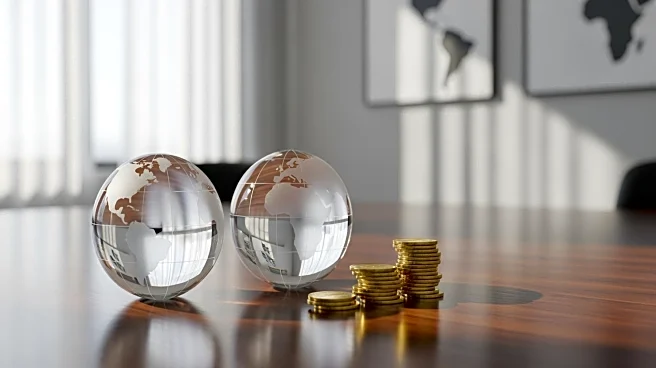What's Happening?
Brazil's Vice President Geraldo Alckmin announced efforts to further reduce tariffs on Brazilian exports to the United States. This follows the U.S. decision to roll back tariffs on over 200 products, including coffee, beef, and orange juice, which are
significant exports for Brazil. The U.S. had previously increased tariffs on Brazilian goods to 50% from 10% in August. Alckmin expressed optimism about the recent decision by President Trump, describing it as a positive step. Brazilian Foreign Minister Mauro Vieira and U.S. Secretary of State Marco Rubio are currently negotiating terms to further reduce these tariffs.
Why It's Important?
The reduction of tariffs on Brazilian exports is crucial for Brazil's economy, as it relies heavily on agricultural exports. Lower tariffs could enhance trade relations between Brazil and the U.S., potentially increasing Brazil's export revenue. This move may also influence other countries in South America to seek similar agreements, thereby impacting regional trade dynamics. For U.S. consumers, reduced tariffs could lead to lower prices for imported goods, benefiting industries reliant on these products.
What's Next?
Negotiations between Brazilian and U.S. officials are ongoing, with the aim of further reducing or eliminating tariffs. The outcome of these discussions could set a precedent for future trade agreements between the U.S. and other South American countries. Stakeholders in both countries are likely to monitor these developments closely, as they could affect market prices and trade policies.
















